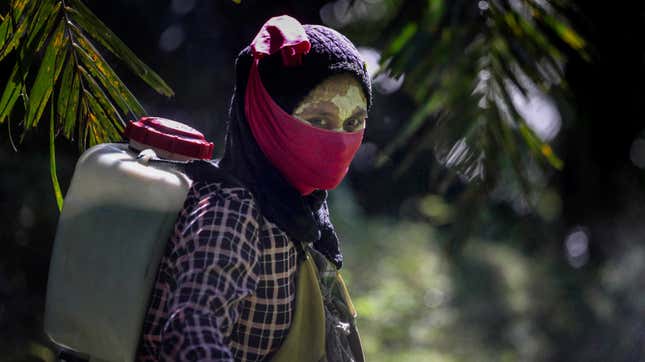The Palm Oil Industry Is a Nightmare for Women: Report
Latest

Palm oil is found in 50 percent of all consumer goods, from doughnuts to deodorant to lipstick. But palm oil production is largely reliant on women and girls throughout Indonesia and Malaysia, where the industry is rife with abuses, including dangerous working conditions, sexual harassment and even rape, a new investigation from the AP says.
An estimated 7.6 million women work in the palm plantations of Indonesia, the world’s largest producer of palm oil. Some begin working as children alongside their parents, while others, like Indra, drop out of school as teenagers. Though Indra’s boss harassed her, she tells the AP that, like many women, her options are limited:
-

-

-

-

-

-

-

-

-

-

-

-

-

-

-

-

-

-

-

-

-

-

-

-

-

-

-

-

-

-

-

-

-

-

-

-

-

-

-

-








































